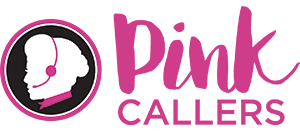Content marketing is a strategy that focuses on creating and distributing targeted content to engage and attract an audience. Recent statistics claim that as much as 80% of consumers prefer to learn about a company through customized content. Some brands such as American Girl, Starbucks, and Disney do very well to focus on their key demographics and stick to them in their marketing strategies.
So what exactly does “content” represent when discussing content marketing? We’ve listed some examples of quality content versus content that doesn’t quite hit the mark.
What Does Content Mean?
Content is the information or experience that a company or person wants to convey or direct toward a specific audience. Although types of content can vary, it typically involves visuals and audio.
For example, a website shows or describes content through pictures, writing, videos, etc. The main goal of this type of marketing is to get leads to improve business profitability.
Content Must be the Focus of Marketing Strategies
If a company focuses on its product or services, it is likely to attract some customers through marketing efforts. But until the marketing allows consumers to understand the experience or expectation that is being sold, there is still work to be done.
Purpose of Content Marketing
There are a plethora of advantages to content marketing, including:
- Draws in customers and increases sales
- Savings on advertising
- Converting potential customers into loyal clients
Quality Websites Draw Customers in
Customers need engagement within the first few seconds of opening a website. Time is valuable, and consumers can decide to leave a website if they don’t feel an immediate connection to the site. For this reason, you need to ensure that your website content persuades site visitors that they require your products or services in their lives. If not, you could risk losing customers who bounce from your website due to a lack of engaging content.
Up-to-Date Content
No customer will spend time on a website that looks dated or has outdated information. Do regular maintenance on your website by adding new products, reviews, photos, and videos to let your customers know that you are always looking to improve.
Content Marketing
Depending on your company, you will choose a type of content marketing strategy that suits your needs. Ensure that your branding is on-point and that your marketing proves the value of your products or services to consumers.
Some examples of content marketing include:
Social Media
Social media is a primary communication channel today. With several different platforms to choose from, advertising on social media is easy, inexpensive, and effective. Some of the most common social media platforms for content marketing are:
- Snapchat
- TikTok
The most effective platforms allow you to show pictures or videos of your product in action. If you are on social media, your clients can also share photos and videos of your products, further enhancing your social media marketing.
Blog Content
Blogs allow you to share content through external links, product information, and even “share” buttons so that someone can do your advertising for you through word of mouth or by making others aware of it.
Infographic Content
Infographic content presents data in a simple format for the user to see. No matter what you are selling or advertising, short descriptions and images will help customers better understand complex information.
Podcasts

Podcasts are enormously popular with people of the younger generations right now. They are a flexible content marketing option since they are not limited by length, topic, guests, or anything else. As long as the company keeps its target audience in mind, it can create a buzz and boost leads.
Pay-Per-Click (PPC) Ads
There is always the option to pay for ads on Facebook, Google, and many other social media platforms. Companies can place these ads in various places such as landing pages, sponsored content, or banners. This form of content marketing offers enormous benefits through targeting, placement, and it can suit almost any campaign budget.
Bottom Line
Making your website user-friendly and ensuring that you have regularly updated quality content is essential to your business.
If a website looks unprofessional or has spelling errors, incorrect information, people are not likely to return. A site that is up-to-date and easy to navigate will boost your site traffic, leads, and sales.
Stay up to date on current technology and ways to get your product out there. Social media is ever-changing, and content marketing is improving every day, so don’t be left behind.
















